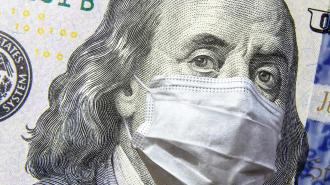UPDATE – 3/25/20: Emergent Ventures has announced the first coronavirus solutions to win a portion of its $1 million in prizes.
Social leadership prize: Helen Chu and her team at the University of Washington
Helen Chu’s decision to pivot her Seattle Flu Study to begin testing nasal swab samples for the coronavirus — without government approval — confirmed that COVID-19 had already established itself in the U.S.
Data gathering and presentation prize: Avi Schiffmann
Seattle area teenager Avi Schiffmann earned an Emergent Ventures prize for building a website that scrapes reliable data about the coronavirus from around the web and updates in real-time.
Prize for good policy thinking: Epidemiologist Neil Ferguson and his team at Imperial College
Neil Ferguson’s team simulated the impact of various public health measures on the coronavirus pandemic — the paper detailing their results has informed government policy in both the U.S. and the U.K.
Prize for rapid speedy response: Curative, Inc. (legal name Snap Genomics)
Silicon Valley-based medical device company Curative, Inc. earned its Emergent Ventures prize for quickly repositioning its team and laboratories to increase COVID-19 testing — and it’s still increasing the number of test kits it produces daily.
Will Pay for Progress
Fellowship and grant program Emergent Ventures has announced more than $1 million in coronavirus prizes, cash awards to be given to people who make major contributions to the battle against COVID-19.
George Mason University’s Mercatus Center launched Emergent Ventures in 2018 as a way of funding the development of promising but unproven ideas for bettering the world.
An attempt to build scalable respirators would be a sure winner if successful, according to Cowen.
Rather than giving money to people who might be able to help with the COVID-19 outbreak, though, the program has decided to award huge chunks of money to those who can actually make progress.
“I am still keen on talent development for this and other problems, but the situation is worse every week, every day,” Tyler Cowen, the Mercatus Center’s General Director, wrote in the blog post announcing the coronavirus prizes. “It is important to incentivize those who are working on these problems now.”
Cash Prizes for Coronavirus Solutions
Emergent Ventures is breaking the more than $1 million in coronavirus prizes down into six categories, according to Cowen’s post:
- Best effort to find a good treatment rapidly: $500,000 (first prize), $200,000 (second prize)
- Best innovation in social distancing: $100,000
- Best blog or social media tracking/analysis of the virus: $100,000
- Most important innovation or improvement for India: $100,000
- Best investigative journalism on coronavirus: $50,000
- Best (justified) coronavirus policy writing: $50,000
Cowen wrote that entirely new categories or additional second and third place coronavirus prizes for existing categories may be forthcoming if Emergent Ventures can raise more money.
Prize-Winning Innovations
As for who might win, Emergent Ventures plans to focus on projects that kicked off after the announcement of the prizes. Potential winners can not apply for consideration, either — the program will award the money when it notices that someone has made a significant breakthrough.
Cowen notes in the blog post a few examples of the types of projects that might qualify for one of Emergent Venture’s coronavirus prizes.
An attempt to build scalable respirators would be a sure winner if successful, according to Cowen. A winning project in the social distancing category, meanwhile, might be something that makes it easier for people to work from home during the COVID-19 outbreak.
“The innovators, medical professionals, and policy people at work on this issue are unlikely to receive anything close to the full social value of their efforts,” Cowen wrote, adding that “the vision is to give to people whose work actually will be encouraged.”
